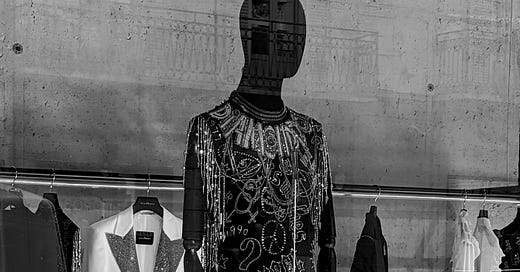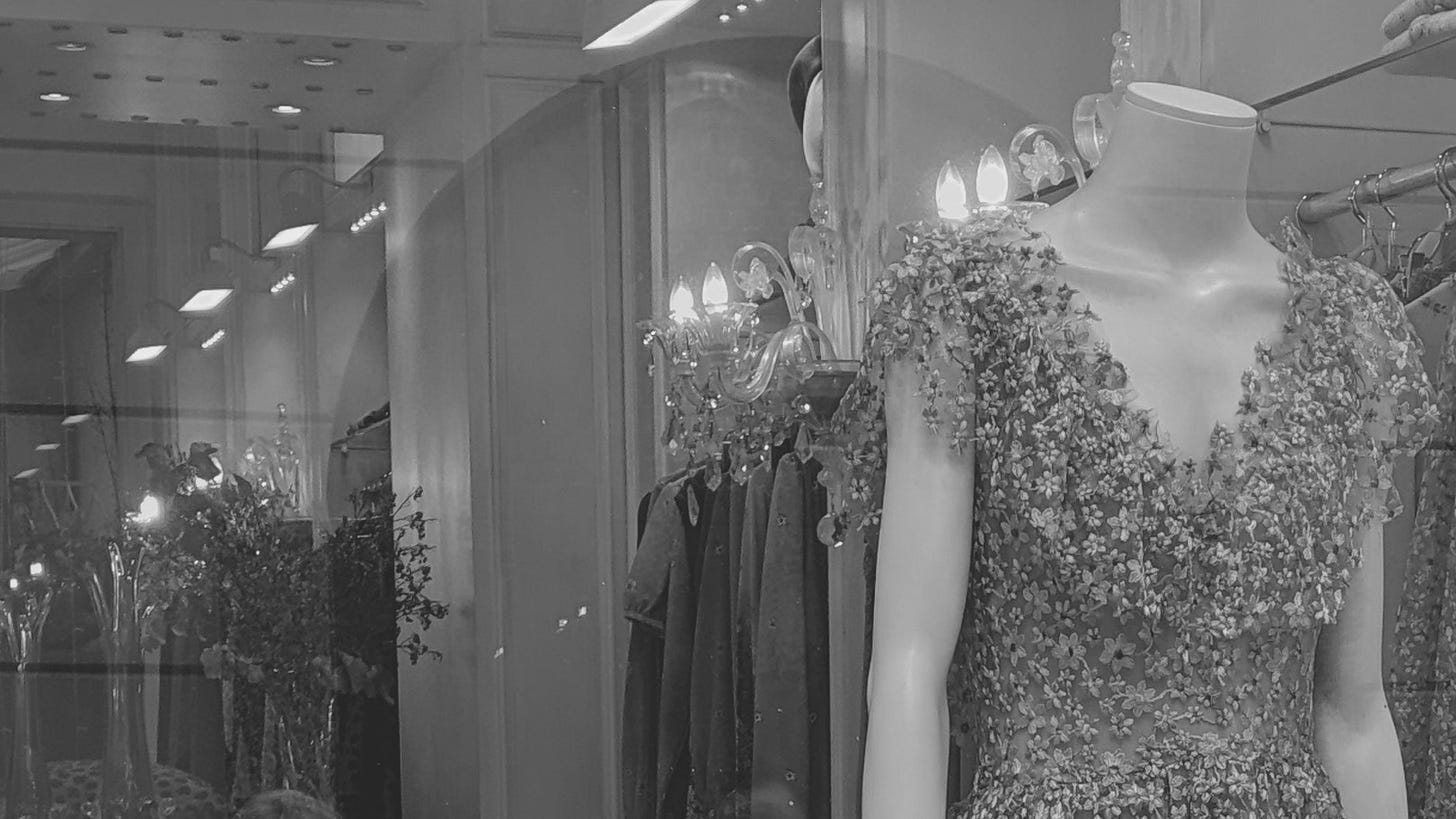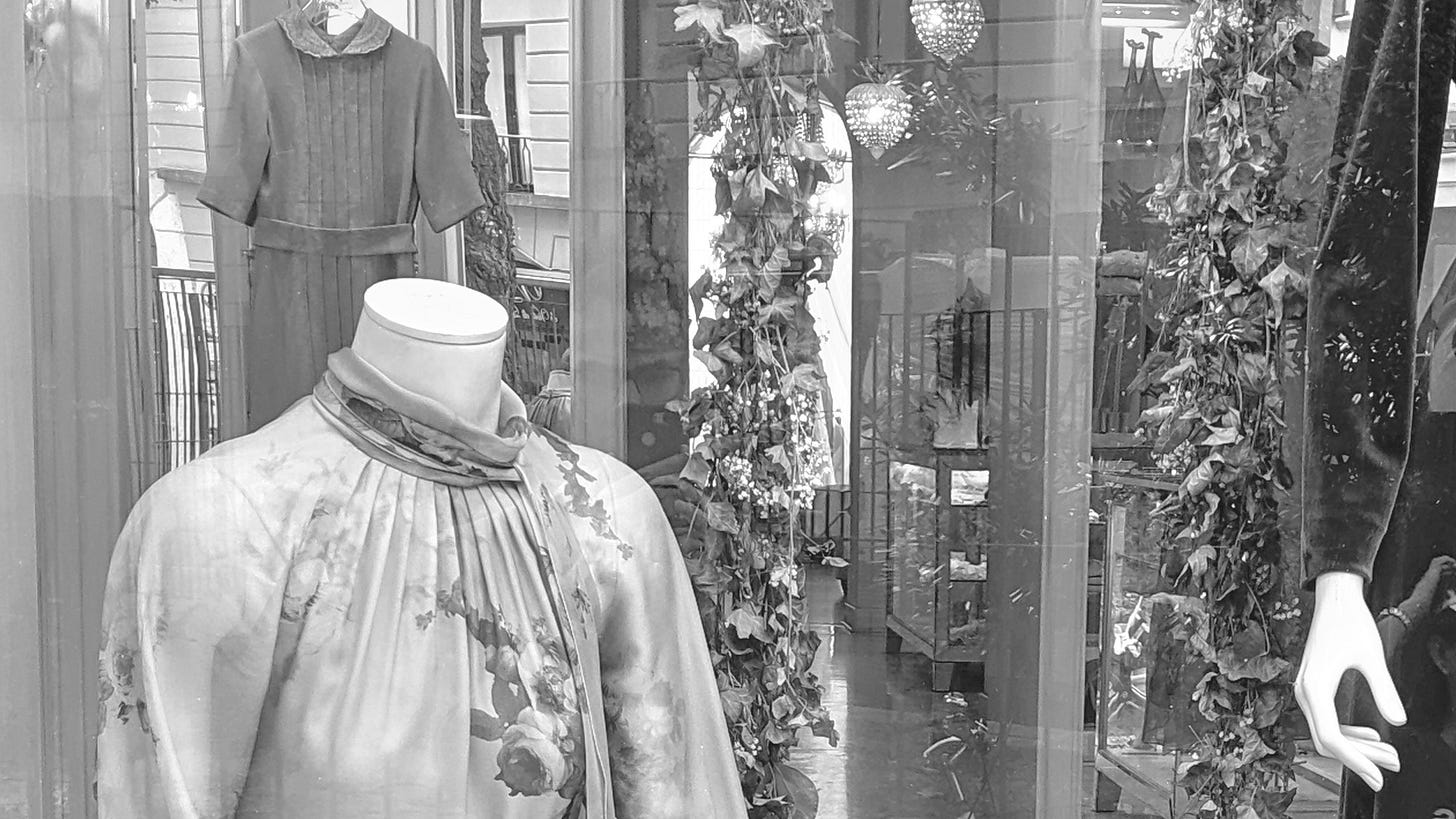Perhaps you want to be creative. Perhaps you want to express yourself. Perhaps you want to take what’s intrinsic and unique in your life and reveal it to the world. To be original, inventive, and artful, in a way that’s undeniably and exclusively yours, in a way that can’t be replicated, in a way that can’t be mistaken for someone else, whether that’s in your art, in your career, or in the mere manifestation of your personality. Even if you feel a tad meek, or if you’re not quite sure what’s so special about your life, there’s at least one moment, at least one youthful experience, one instance of passion, that you know is unique, and that only you possess—an experience that remains raw and visceral and profound and that’s imprinted in your body and that you yearn to declare: perhaps you’ll paint it on a canvas, perhaps you’ll write it in a book, perhaps you’ll articulate the sensations with just the right combination of words in a dramatic story to a friend. Because there’s something hidden deep inside of you that’s true and distinctive and that you must, just once, show.
For such a long time, it seems, you’ve thought about those curious sensations, which means that you have a sensitivity, a perceptiveness, about what they might mean, having already obsessed about every facet of what’s pulsing inside you. Over time your imagination has extrapolated the details into branching fictions, you’ve conceived of stories, images, come up with ideas. And you do, eventually, somehow, manage to grasp all those elusive, abstract sensations and shape them into something creative, as original constructions, as novel ways of seeing. On a canvas that halts viewers. In a page of sentences that moves readers. During a dinner with a close friend where, at the key moment, you describe what’s intrinsic to you in an artful and intriguing and eloquent manner and the words sound perfect to your ears right as they leave your mouth.
Regardless of the method, you feel creative, explosive, it is a burst of energy that lights your body. Your sensations have kindled something that’s entirely new. The creations are a consequence of your experience. Even if another person painted the same scene or wrote the same book or told the same story, the result would be different, for the simple reason that nobody else has experienced your life—your family, your friends, your pains. What you create can’t be replicated, there are no potential forgeries, just as nobody else can see through your eyes. What you’ve created comes from a source that is fundamentally original.
But you don’t always receive thanks. After you’ve labored to excavate your core, after you’ve peered into the abyss of your mind, snatched what’s inseparable and true and almost always painful about yourself, you are sometimes given a little shove. One that’s abrupt and certainly unexpected. And now you’re on your heels, reacting to the reactions about your creation. Comments about your creations are comments about you. Even a complimentary word occasionally lands flat to your ear, just as a complimentary word about appearance can prompt, for some, a moment of vulnerability, a sense of shame. Comments don’t appear as neutral statements about your art, you believe, but as statements of worth about you as a person. To hear that there’s a bit too much black in the background of your canvas sounds indistinguishable from hearing that there’s a bit too much black in your soul. Maybe that’s right, you begin to wonder. You’ve inserted your existence into your art, which now leaves the thorny problem of considering any criticism of your art as criticism of you. That painting came from your spine. That book resulted from your marrow. That artful phrase is connected to your viscera. Even though what you’ve created is now external, even though it is now exhibited for every voyeur who strolls past, it is still, in your mind, reflective of what’s internal to you. Birthed from your body like a child—your poor creation—you notice that you feel protective, watchful, defensive.
Over time you start adding a little armor to your wardrobe. Your fine sensitivity has helped you to create something original, but now you’ve learned the lesson of walking around with exposed nerves. Now you’re dressing like so many of our contemporary artists. You carry a shield, don a metallic helmet, and wear a plate over your chest, ensuring that nothing can pierce your hard exterior. Which does, you soon realize, slow down your perceptions, and encourage you to be surprisingly defensive. You feel primed, in your suit of armor, for the next insult, for the cutting word, for the misinterpretation, until you start noticing comments before they even appear. When you wear so much armor it feels like nearly everyone is about to attack.
Thus you learn to exhale. You loosen your muscles, release the tension, and free yourself from any pressure. You’ve lost any attachment to outcomes. You put your art into the world, offer up pieces of your body as an exhibitionist, yet the reaction is outside your control. There’s no reason to care. You are nude on the stage—with all your blemishes, worts, asymmetries, scars, pockmarks, wrinkles, deformities, blotches, moles, and unsightly imperfections visible underneath the spotlight—but what’s said about your art, about you, seems to reflect more about the critic than the art, as goes the very true cliché. Now every word about your art comes from a distance, as little murmurs from the rolling, boisterous, haphazard crowd, far removed from the stage and without any relevance to your life—the comments sound hushed, mumbled, garbled, it is like listening to a language that you don’t understand.
Which leaves you with a bit of a paradox: you can’t care too much, you can’t depend on your art to define your very existence, and then consider every word as related to your value, nor can you continue to dismiss the crowd’s reaction to your art, retreating into a cocoon of isolation, which makes you feel cold and apathetic and insensitive. You begin to oscillate. You have volatile, childlike reactions. Sometimes you care too much. You allow external comments to brand your skin, searing your body with a definitive judgement. Sometimes you don’t care much at all: you tighten your fists, clench your jaw, tense your neck, and maintain a stoic pose, your skin leathery, once again, your shell so rigid that you’ve lost all the humanity that made your art possible.
Eventually you return to the very beginning. To the origins of your earliest desires. To the roots of that peculiar impulse that drove you to create. You’ve uncovered your most intimate sensations, those private sensations entombed deep within your very essence, but you can’t answer the most basic question: why? What’s the purpose of displaying the personal? To tell your story? To show your creativity? Your cleverness? Nothing that appears as a potential answer feels remotely sufficient. The more you ponder, in fact, the more that public creation sound like a diary, like the kind of story that’s meant for the speaker rather than the listener. Isn’t there just a little bit too much solipsism in spending everyone’s time with your truth, or in your story?
But on your very best day, when you’re feeling the most generous, a rather curious conclusion starts to emerge—it seems to snap into place with almost perfect clarity. What if all your struggle toward a creative outcome is directed outward? What if the purpose of revealing what’s fundamental and genuine and original about your existence isn’t actually related to you, that the most exalted purpose for your creative labor is to entertain, delight, inform, persuade, intrigue, or absolutely anything at all that’s external? That the creativity that comes from within you has an outward target? In this slight shift of emphasis, you feel a much larger transformation, especially in how you view your own creative work—it is an unexpected dilation of your eyes, as if you’ve just stepped into a bright light.
Now every comment comes across with a different valence, every word about your creativity is information: some of it sounds nice, some of it sounds not so nice, some of it is helpful, some of it is unhelpful. But all of it triggers you to learn, or to recalibrate, because your objective, for once, is absolutely clear. So you accept the kind words with ease and with even greater ease dismiss the ruder words, as you’re too monomaniacal about your new target to fixate on or even consider information that’s not useful. You’ve transformed from a person who becomes angry after you give someone an unwanted gift, to a person who is pleased to learn that a gift you’ve given is unwanted, as that’s certainly worthwhile information—because the original purpose, so many people do forget, was to offer a gift, and that’s not about you.







Nice piece.
Of course you can also make it your life purpose to annihilate anyone who dared criticising you. Sounds like a nice pitch for a film.
I once saw a theatre director storm out of another’s play while yelling ‘I write critics in --famous French newspaper-- I will destroy you!’
Creativity can be a gift and a curse. It can cause great pleasure, and great frustration. It’s easiest when we’re children and barely aware that an audience and judgements and feedback await our efforts. It’s hardest when we become a slave to critics, or the approval of others. It’s lonely if we create in secret, denying ourselves constructive feedback that can lead to growth. And it’s saddest if we discard it and quit. Thanks, Charles, you’ve eloquently captured the entire creative journey.